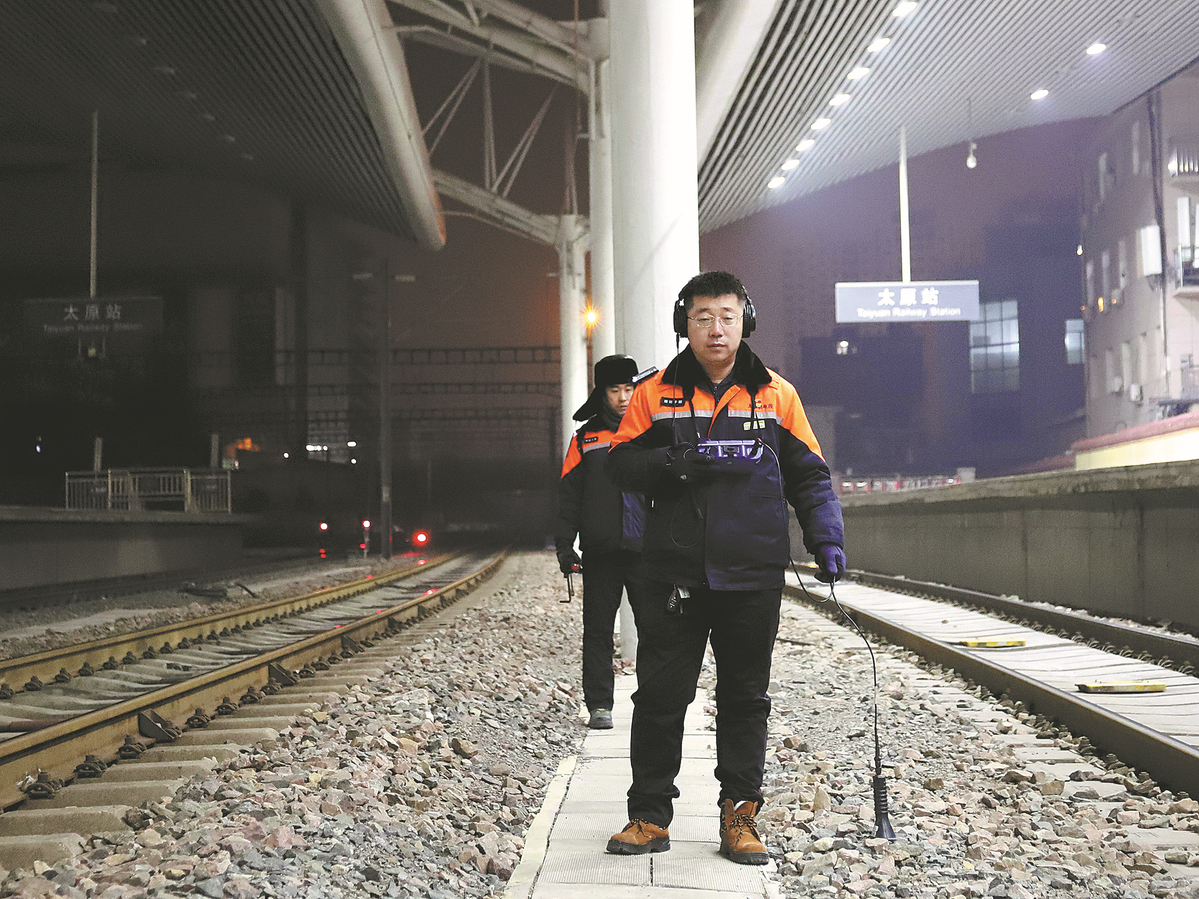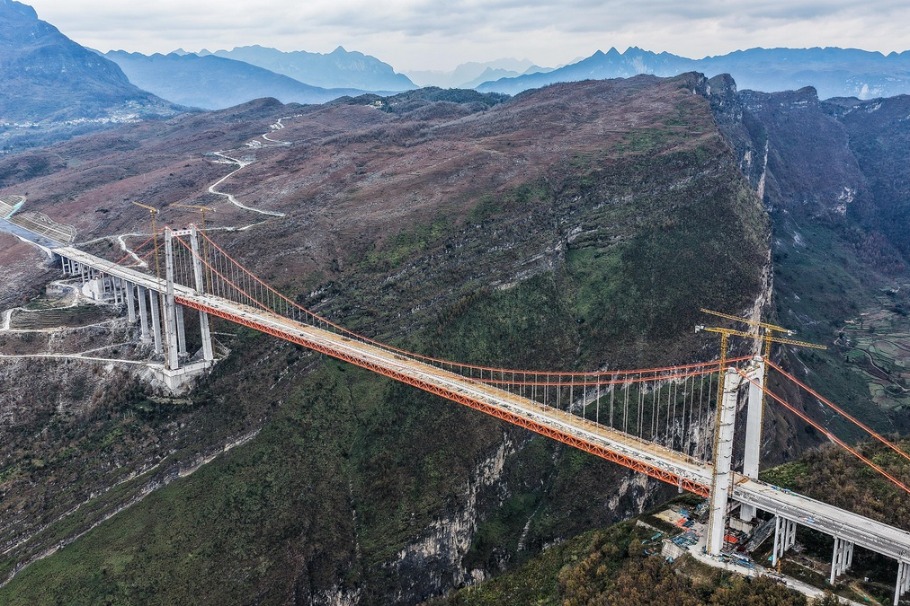Worker detects water leaks on Taiyuan trains


TAIYUAN — Du Biao works in the wee hours of the morning, engaged in a unique task — listening for leaks in the water supply system that serves China's passenger trains.
Amid the chilling midnight winds, Du and his colleagues gather at Taiyuan Station in North China's Shanxi province, armed with special tools and a shared commitment to their task. They work through the early hours because there is less ambient noise to interfere with their delicate operations.
Situated in the provincial capital of Taiyuan, the station is a bustling hub, particularly during the 40-day Spring Festival travel rush, which began on Jan 26 this year. Approximately 130 passenger trains come through the station every day during the period, of which about 40 need to replenish their water supply.
As a member of the Taiyuan power supply section within the Taiyuan bureau of China State Railway Group, Du takes charge of maintaining and assessing the water supply equipment at Taiyuan Station.
His primary responsibility is listening for leaks and faults in the station's underground water-supply pipelines. He uses specialized equipment to listen for sounds in the ground through which the pipes run, a job that requires relative quietness.
The work is essential for ensuring trains have sufficient water supply for drinking and flushing toilets. Water is also used in the cooling systems on some of the older trains, while surpluses are stored in case of accidents and fires. Without Du and his colleagues, the passenger train services could not run properly.
Du has worked in the water supply industry for almost three decades, and was first introduced to the technology for listening to leaks in 2018. He is now a seasoned professional, capable of interpreting a range of intricate subterranean sounds to locate a leakage point.
The key equipment consists of a radio headset, a sonic instrument slung from the neck and a hand-held sound-detecting device. The device is held to the ground and picks up the sounds of the water system in operation. Even the faintest sounds, such as the friction of stones on the ground, can be amplified a hundredfold.
Du starts his work at 1 am. A detailed map of underground pipelines unfolds in his mind as he walks back and forth, listening more than 1,500 times as he covers about 3 kilometers.
For Du, each listening session requires his full concentration, with the sounds in his headset becoming his entire world.
"To excel in this, one must maintain keen ears and sensitivity to water sounds," Du said. "Listening to distinguish locations also requires absolute patience, ensuring that no leakage point goes unnoticed."
He notes that inspections can be complicated by factors such as the depth of pipeline burial, geological conditions, water supply pressure and ambient noise.
"If leakage points aren't heard promptly, it not only affects passengers' water supply, but may also cause the foundations of the railway to sink over a long period of time, impacting the overall safety of driving."
Acknowledging water as the source of life, Du said, "Though we may not be on the frontline, we serve frontline equipment, safeguarding the 'source of life' for passenger trains."
Xinhua
- Beijing mandates helmets for e-bike users, bans scooters
- Judicial guideline streamlines maritime dispute resolution nationwide
- China rolls out festive campaign to boost sustainable agricultural consumption
- China set to establish early pregnancy clinics across 10k hospitals
- Cold front coats Guizhou mountains in rime
- Two dead after unauthorized crossing of Aoshan Mountain





































